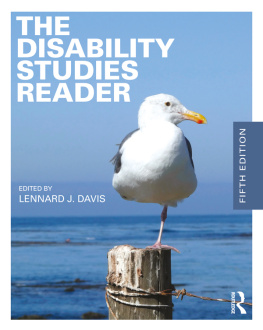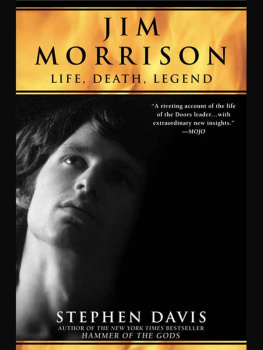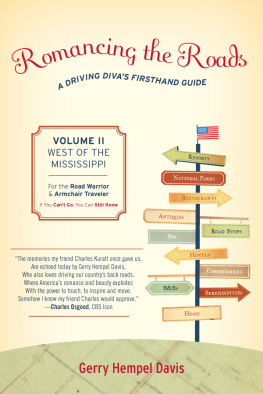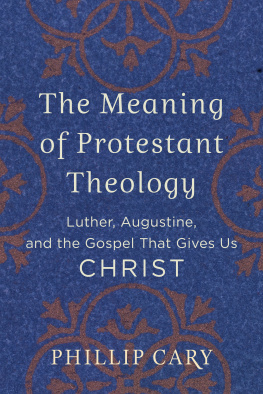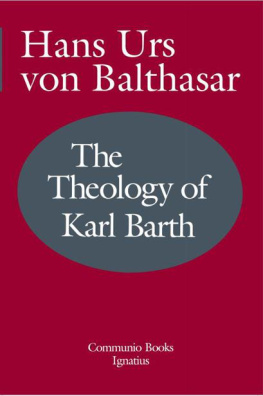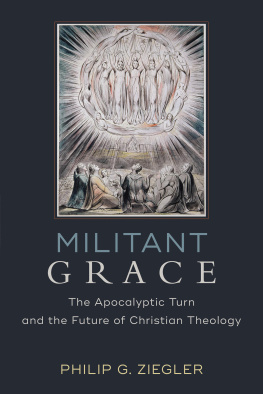Waiting and Being
Creation, Freedom, and Grace in Western Theology
Joshua B. Davis
Fortress Press
Minneapolis
WAITING AND BEING
Creation, Freedom, and Grace in Western Theology
Copyright 2013 Fortress Press. All rights reserved. Except for brief quotations in critical articles or reviews, no part of this book may be reproduced in any manner without prior written permission from the publisher. Visit http://www.augsburgfortress.org/copyrights/ or write to Permissions, Augsburg Fortress, Box 1209, Minneapolis, MN 55440.
Scripture quotations are from the New Revised Standard Version Bible, copyright 1989 by the Division of Christian Education of the National Council of the Churches of Christ in the USA. Used by permission. All rights reserved.
Cover design: Alisha Lofgren
Library of Congress Cataloging-in-Publication Data
Print ISBN: 978-0-8006-9990-1
eBook ISBN: 978-1-4514-6522-8
The paper used in this publication meets the minimum requirements of American National Standard for Information Sciences Permanence of Paper for Printed Library Materials, ANSI Z329.48-1984.
Manufactured in the U.S.A.
This book was produced using PressBooks.com.
Contents
This work would not have been possible without the encouragement and support of far too many people to name. Many, however, are owed special thanks.
I owe a special debt of gratitude to Paul DeHart, who oversaw this work in its earliest incarnation as a dissertation. I am also indebted to Patout Burns, my first reader. Both have been exceptional models of scholarship and teaching, and their continued support was welcomed at critical moments. I also want to thank the other members of my committee, Ellen Armour and John J. Thatamanil. I am also grateful to Douglas Meeks, from whom I learned to recognize myself as a theologian for the church. The subtle impact this made for me made all the difference.
It has been a special honor that this work took its initial shape within the vibrant and creative community of scholarly dialogue that took place at Vanderbilt Graduate Department of Religion during my time there. I owe more than I could ever know or successfully recount to Travis Ables, David Dault, David Dunn, Burt Fulmer, Sean Hayden, Aaron Simmons, and Natalie Wigg-Stevenson. I am glad to have called Nate Kerr my friend. And my sincerest thanks go to Mike Gibson, my editor, who made the project possible and saw it completed.
Tim Eberhartever stalwart!has been in due turns a brother, antagonist, teacher, and moral compass. The influence of his friendship permeates this work. The same is true of Dave Belcher. I believe he read and commented on every version of this work. It is better because of him. So am I.
This study attempts to address a doctrinal problem is theology. It is no longer common for theologians to attempt to resolve specific predicaments of doctrine. Theology has recently tended instead to focus on the academic studies of figures or the relationship of theological questions to more general intellectual concerns. The working assumption of contemporary theology, at least as a specifically academic discipline, seems to be that questions of doctrinal coherence are either already largely resolved or have no important consequence for the discipline. Nevertheless, such problems remain of enormous importance for both academic theology and the life and mission of the church.
Perhaps the most salient instance of this continued incoherence is the continued division of Protestant and Catholic churches over the issues of human cooperation in redemption and the final authority in matters of doctrine and discipline. In their different ways, each of these positions is a conviction about Gods grace and its relationship to the world. And, in fact, this study grows out of the conviction that these more conspicuous of the confessional differences between Catholics and Protestants are largely presenting symptoms of the more cunning wiles by which we have sought to conceal from view the persistent incoherence of our doctrines of creation and grace. It is for this reason, I believe, that recent theology has become much more attuned to this separation than in previous periods, as I will discuss in more detail in chapter 1. Yet even in those places where the problem is brought to the foreground, as with the work of Henri de Lubac and Karl Rahner, or Friedrich Schleiermacher and Karl Barth, the separation of the doctrines continues in ways that elude detection.
I first encountered this problem after initially puzzling over the discontinuity I saw between Augustines early theology of creation and his later theology of grace. The Augustine scholar J. Patout Burns helped me to see that on these specific questions Augustine was not, in fact, the Augustine of the theologians. He was neither the monster that one half of the theological world repudiated nor the paragon of ontological participation that the other half championed. He was instead a much more complicated, honest, and passionate thinker than these caricatures allowed. Though certainly not immune to self-deception, he was the kind of thinker who relentlessly followed his convictions to their conclusions, and even abruptly and skillfully changed his mind in radical ways. He pursued and tackled the most difficult of theological problemscreatio ex nihilo, grace, sacramental validity, freedom, electionand illuminated each one.
It was for this reason that the development of Augustines theology of grace, which led him to embrace a position so out of sync with his most fundamental convictions about creation, was so intriguing. But it was also particularly troubling, given that the theologians to whom I was most draw relied so heavily on that same doctrine of creation. But though I was determined to uncover a theological connection between the late theology of creation and the early theology of creation, I was forced to conclude that such a connection could only be made by suppressing the Augustines most important insights into the nature of grace and the human will. I was left with an Augustine who was much less amenable to the purposes to which contemporary theologians wanted to put him but who had illuminated the complexities of the relationship between grace and creation in decisive and unavoidable ways.
On these points, my treatment of Augustine in this study is indebted to the historical work of J. Patout Burns and Robert J. OConnell. The original inspiration for the study was a remark made by Tracy in his afterword to the collection Mystics: Presence and Aporia, which I read at the height of wrestling with Augustine. Tracy states there that additional work needs to be done on the ways that Augustine is the source for Catholic theologys nature/grace paradigm and Protestant theologys sin/grace paradigm. This study is the result of the reflection that Tracys comment inspired.
Additionally, my close reading of Gillian Rose over the last two years, and particularly Hegel Contra Sociology, also shed light on this particular set of issues I had been exploring in the Augustinian legacy, and did so by connecting them to the wider cultural and philosophical influences on modern theology. Like Augustine, Rose too ran headlong toward the great problems of thought and confronted them with gravity and uninhibited creativity. Both were erotic thinkers, writing from a hunger that acknowledges a lack, but knows also that it can be filled. And their positive visions developed within the striving to satisfy that yearning.


